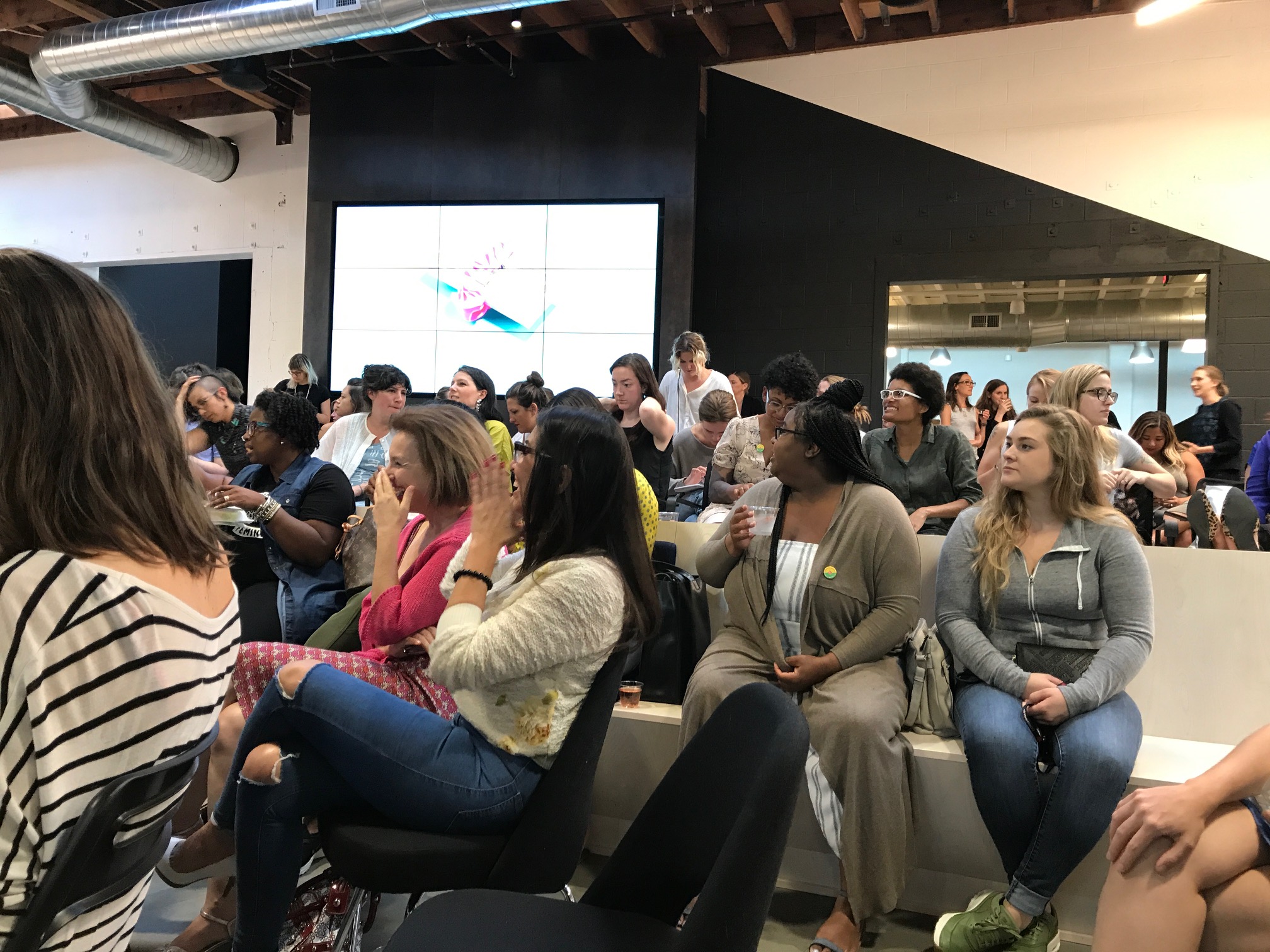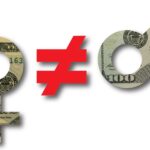It is a sad and frustrating fact that women are 60% of today’s college graduates, but less than 22% make it past middle management.
Despite all the progress that appears to have been made to close the wage gap between men and women — the Oregon Equal Pay Act of 2017 was passed in June — women still earn considerably less than men.
Shocking racial disparities also exist.
White women make 80 cents to the dollar of what men earn. Black women make 63 cents, and Hispanic women make 54 cents.
Statistics like this inspired Clare Wasserman to quit her job last year as an events producer in New York to form advocacy group Ladies Get Paid.
Wasserman travels around the country to lead town hall meetings that provide women a forum to share stories and strategies for closing the wage gap.

I attended the launch of the Portland chapter last night at the headquarters of Swift, a creative agency in Portland’s Pearl District.
More than 100 women came together for the meeting that felt like a throwback to the feminist movement of the 1970s.
Only this town hall had a decidedly modern day feel, located in the trendy, sleek offices of a digital marketing agency.
The group has a carefully constructed social media presence and sports the bold Twitter hashtag #fuckthewagegap.

A panel of business women shared stories of wage discrimination and discussed ways to advocate for more equal pay.
Despite all the talk of the growing significance of equity and inclusion in the workplace, clearly women still feel marginalized.
Panelist Liz Valentine, CEO of Swift, described how while working at a “large footwear brand” in Portland she found out her male colleagues were earning around $20,000 more than she was.
When Valentine asked for a raise, her request was denied and she quit (after quitting she was offered a higher salary and a promotion).
Valentine eventually went on to found Swift and is now on the other side as an employer.
She called on women to market themselves and brag about their abilities. In today’s tight job market, it is “now more than ever important to own what you have,” she said.
“Talk about money! If you don’t talk about it, no one is going to pay you.” –@salutaimee on breaking through awkwardness around ?. pic.twitter.com/t2v1Wth7GS
— Ladies Get Paid PDX (@LGP_PDX) August 31, 2017
Portland Monthly Magazine senior executive editor Kelly Clarke described how she felt “lucky” to be in her media job* and made excuses for the low pay because of the great job experience she was getting. It was only after having a child and her job becoming less central to her life that she pushed back.
The notion of being lucky and therefore not deserving of higher pay was a common thread among women at the meeting.
Panelist Aimee Reed, a designer at AKQA, a creative agency, said women need to feel empowered to advocate for themselves and get over the “awkwardness” of asking for money.
Reed talked about her experiences of working as a freelancer, where she learned the hard way how to ask for money.
“I feel awkward talking about money. But if you don’t talk about it, nobody will pay you,” she said.
In the end, I found the stories and advice that women shared inspiring. I still can’t believe women still have fight for equal pay, but the vibe of camaraderie made me feel all is not lost.
*Clarification: Clarke requested a clarification that she was referring to a prior job and not her job at Portland Monthly Magazine.




